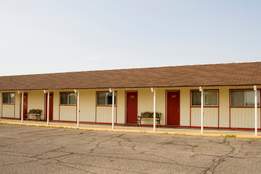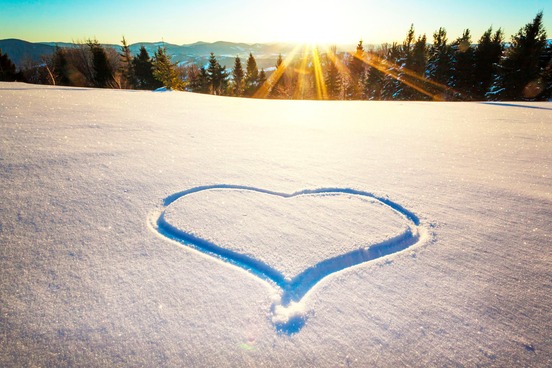
Apricity
Definition
: the warmth of the sun in winter
About the Word
This word provides us with evidence that even if you come up with a really great word, and tell all of your friends that they should start using it, there is a very small chance that it will catch on. Apricity appears to have entered our language in 1623, when Henry Cockeram recorded (or possibly invented) it for his dictionary The English Dictionary; or, An Interpreter of Hard English Words. Despite the fact that it is a delightful word for a delightful thing it never quite caught on, and will not be found in any modern dictionary aside from the Oxford English Dictionary.
Example
“These humicubations, the nocturnal irrorations, and the dankishness of the atmosphere, generated by a want of apricity, were extremely febrifacient.” Lorenzo Altisonant (aka Samuel Klinefelter Hoshour), Letters to Squire Pedant, 1856
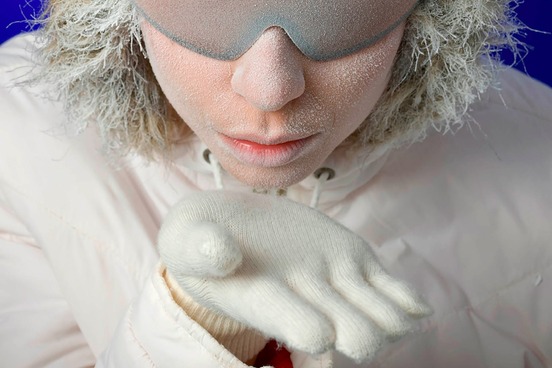
Hiemal
Definition
: of or relating to winter
About the Word
The English tongue has never been accused of being deficient in its collection of synonyms and near synonyms. It often appears that the language decided (if languages can decide things, which they cannot) that if it was good to have one word for a thing then having a half dozen must be better. And so we find ourselves with a large number of words having to do with describing winter. If you are tired of describing things as wintry, you can instead say that they are hiemal, hibernal, winterish, or brumal.
Example
“We have reached what W.O. Pruit Jr., a winter ecologist from the University of Manitoba, dubbed the hiemal threshold." Phil Burke, Daily Miner and News, 13 Jan. 2022
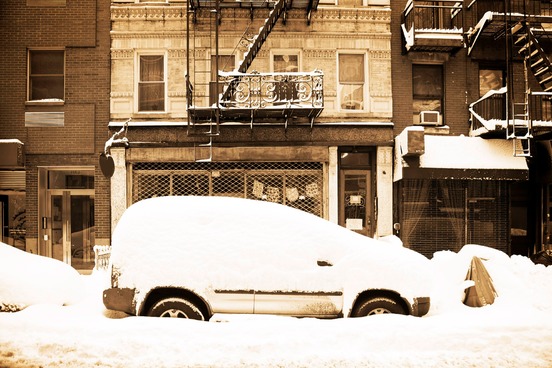
Subnivean
Definition
: situated or occurring under the snow
About the Word
The simplest way to describe this word (at least for those unfortunates who reside in the Northern parts of the United States) is to ask you to imagine your car in the months of January or February. Having a pretty word to describe this when you are scraping and digging away to rescue your vehicle will not make the task any more enjoyable, but it’s always nice to have another pretty word. Another lovely word dealing with snow, of similar origins, is niveous, which means “of or relating to snow: resembling snow (as in whiteness): snowy.”
Example
“Pouch-shin was no longer playing a solitary Jack-in-the-box, but, in all likelihood, he was under the huge body of the savage monster, in the act of being torn to pieces by his teeth, or perhaps drowned in the subnivean stream.” Mayne Reid, Bruin: The Grand Bear Hunt, 1866
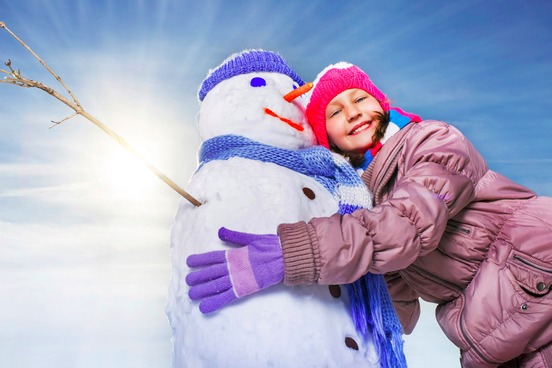
Psychrophilic
Definition
: thriving at a relatively low temperature
About the Word
Psychrophilic was not coined in order for you to describe someone who prefers that the temperature of your home or office be freezing; this prickly looking adjective is generally used to refer to bacteria or similar organisms. In the event that you choose to use it in a figurative manner there’s no one who can stop you. An organism (or roommate) that thrives in a low temperature is a psychrophile (not to be confused with thermophiles, which do well in hot temperatures, or mesophiles, which do well in moderate ones).
Example
"This psychrophilic diatom is abundant in open waters and within sea ice. It has developed several mechanisms to cope with the extreme conditions of its environment, for example, the production of ice-binding proteins (IBPs) and extracellular polymeric substances known to alter the structure of ice." Eickhoff, Lucas, et al., Ice nucleating properties of the sea ice diatom, Fragilariopsis cylindrus and its exudates, in Biogeosciences, 2023
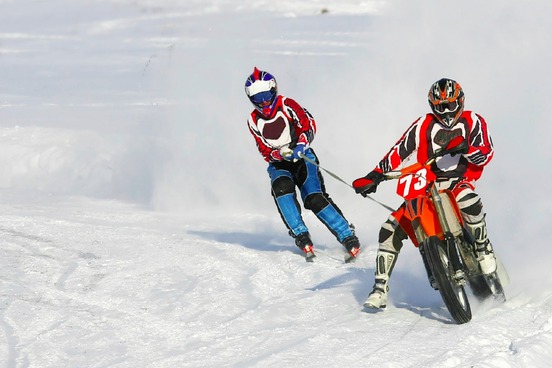
Skijoring
Definition
: a winter sport in which a person wearing skis is drawn over snow or ice by a horse or vehicle
About the Word
Skijoring sounds a bit like the ill-advised sport your inebriated cousins engage in, when they attach some skis or a sled to the back of a pick-up truck and drive until one of the participants meets with a tree. Such activities may indeed qualify as skijoring, but the sport is also a fairly old pastime in certain Northern European countries. The word has been in use in English since at least 1904, when the Illustrated Sporting and Dramatic News featured a two-page illustration of the sport, with a gloriously mustachioed fellow being pulled through the snow by a pair of horses. The caption to the picture noted that “To the inexperienced a fall may be very serious, owing to the pace at which he is moving.” Make sure you tell that to your cousins when they suggest it this Christmas.
Example
“Skijoring is what they call it in Norway and it is the most popular outdoor sport in the land of the midnight sun.” The Oregon Daily Journal, February 6, 1904
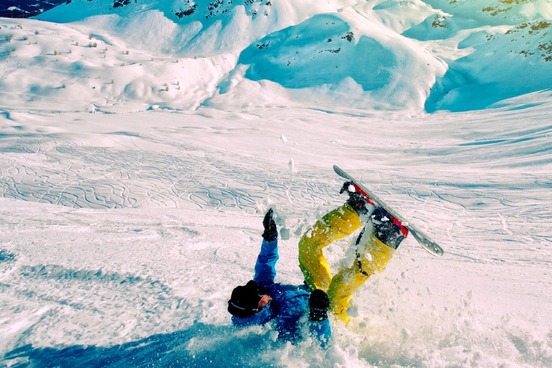
Sitzmark
Definition
: a depression left in the snow by a skier falling backward
About the Word
Even though the English language is almost indescribably rich and varied in terms of its range and vocabulary, we have a relative dearth of words to apply to the physical evidence of doing a specific thing poorly. In light of this, words such as sitzmark, which refers explicitly to the dent or hole left in the snow by a skier’s rump, should be celebrated.
Example
“The Sitzmark discloses certain marked advantages over the Telemark, another rudimentary means of stoppage—chief among which is the fact that you are probably already in position to execute it.” The Princeton Alumni Weekly, March 27, 1936
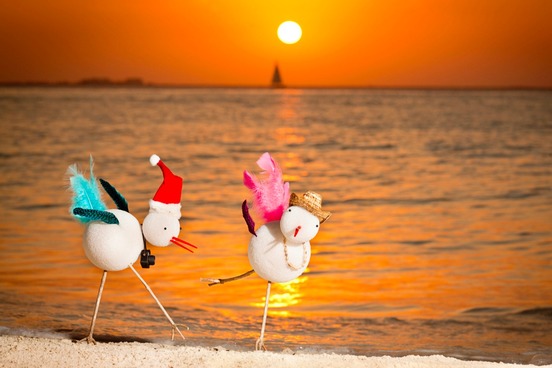
Snowbird
Definition
: one who goes to a warmer region for the winter. Also, a cocaine addict
About the Word
It’s always nice to be reminded that generations before ours were often preoccupied with the same bad habits as are people in the current day, and furthermore, that these ancestors of our had slang words for these bad habits, just as kids today do. The use of the word snowbird in reference to cocaine may sound like a fairly recent application, but it actually dates over a hundred years, being used from at least 1909 (although it initially was used to describe a cocaine dealer, rather than a user of the drug). The druggy use of this word is actually older than the one to describe a person who goes to Florida for the winter.
Examples
“O’Keefe, in a conversation with Patrolman Ackerman, who has been assigned to investigate the cocaine traffic, admitted that he foregathered with the “snow-birds” of South Portland and got his supplies from them.” The Morning Oregonian, July 18, 1911
Frank Pepe, which has a rabid following among South Florida's snowbirds and Northeastern transplants, fires its coal-fired apizza (pronounced "ah-beets") at a super-hot 600 degrees Fahrenheit for a few minutes, yielding its trademark crispy-chewy thin crust. Phillip Valys, South Florida Sun-Sentinel, 11 Jan. 2023
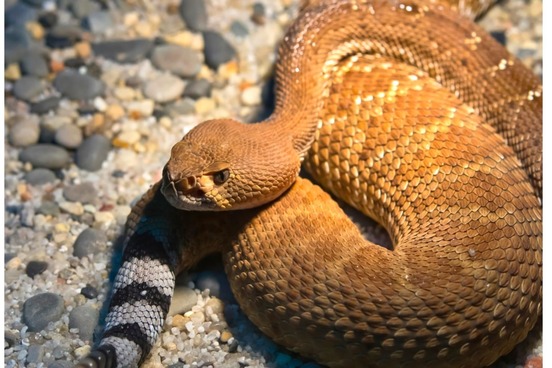
Brumation
Definition
: a state or condition of sluggishness, inactivity, or torpor exhibited by reptiles (such as snakes or lizards) during winter or extended periods of low temperature
About the Word
Brumation is the creation of the American zoologist Wilbur W. Mayhew, who coined in a 1965 paper on the hibernation of the Horned Lizard, as he thought there needed to be a term that distinguished between the wintertime habits of cold and warm-blooded animals. There is, as best we can tell, no independent word to describe the winter sluggishness and inactivity of people.
Example
“Constipation associated with brumation? Intestinal obstruction caused by a fecalith in a wild red diamond rattlesnake (Crotalus ruber)” (Title) Corbit, A G; Person, C; Hayes, W K, in Journal of Animal Physiology and Animal Nutrition, 2014
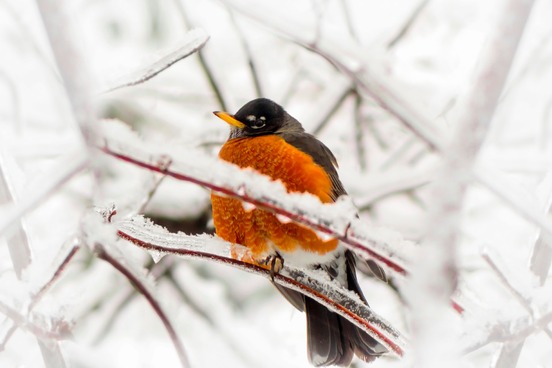
Primaveral
Definition
: of or relating to early spring
About the Word
Some people find that knowing a word for a certain thing makes them pay it greater attention. Chances are very high that, after having slogged through the cold and gloom of several months of winter, you will not need to be reminded that spring is just around the corner; in the event you are the sort of person who overlooks the slight warmth of a breeze foreshadowing the end of winter, or misses the crocuses beginning to flower, it may be handy to carry around with you a word for the beginning of this new season.
Example
“Songbirds begin to sing early in the primaveral season, the Blackbird often in January, and the Thrush soon follows.” Thomas Furley Foster, The Pocket Encyclopædia of Natural Phenomena, 1827
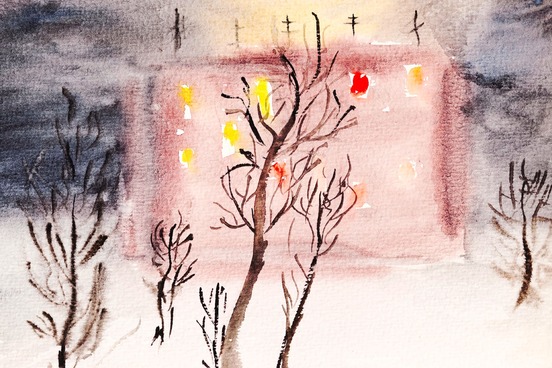
Seasonal Affective Disorder
Definition
: depression that tends to recur chiefly during the late fall and winter and is associated with shorter hours of daylight — abbreviation SAD
About the Word
It is unclear whether the abbreviation for this condition was intended as a pun or not, but seasonal affective disorder has been diagnosed since the early 1980s. It seems fairly certain that people have been suffering from it for millennia prior to this.
The bright side of SAD, if there can be said to be one is that it tends to be as perennial in its disappearance as it is in its arrival. And, hey, it sure beats piblokto.
Example
“When we considered the request to write Seasonal Affective Disorder For Dummies, we immediately thought about the travel implications.” Laura L. Smith & Charles H. Elliott, Seasonal Affective Disorder For Dummies, 2007
